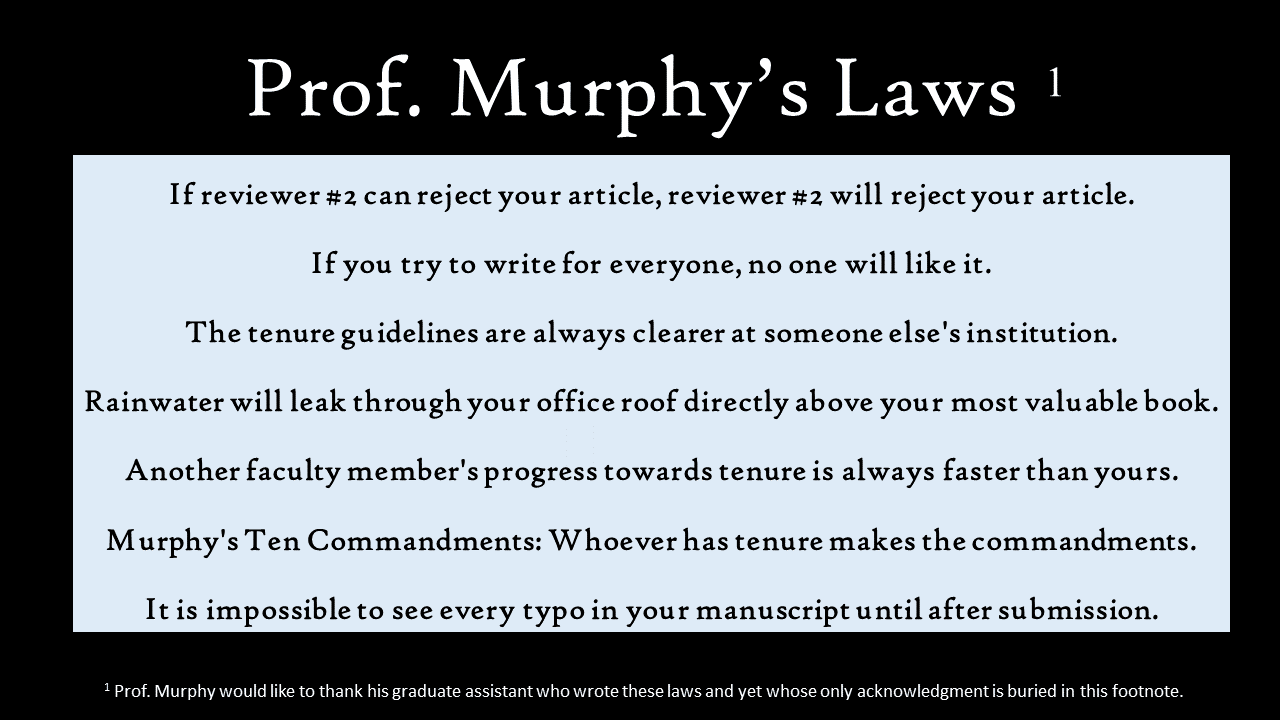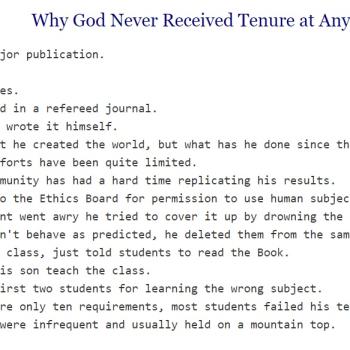I made up an academic version of one of Murphy’s famous laws in a Facebook comment recently, and realized there is a need for a fuller collection of this sort of thing. And so I started making a longer list. Here is what I have come up with so far:
- If reviewer #2 can reject your article, reviewer #2 will reject your article.
- If you try to write for everyone, no one will like it.
- The tenure guidelines are always clearer at someone else’s institution.
- Rainwater will leak through your office roof directly above your most valuable book.
- Another faculty member’s progress towards tenure is always faster than yours.
- Murphy’s Ten. Commandments: Whoever has tenure makes the commandments.
- It is impossible to see every typo in your manuscript until after it has been submitted.
I will add by way of context that (1) my next book will try to be of interest to academics yet accessible to a general audience, and (2) my department has the clearest tenure and promotion guidelines anywhere in academia, for which I am incredibly grateful. But Murphy’s Law(s) are not about those times when the bread does indeed land butter-side up (personally I’ve stopped eating bread and don’t have carpets but the principle behind the famous subclause still applies in other domains) but about the propensity for things to go wrong. Even when tenure guidelines are clear and reviewers are receptive to ideas there can still be issues.
I suspect that there are already some that pertain to Zoom that come to mind. The odds of the microphone not picking up what you are saying while wearing a mask correlates directly to the importance of what you are saying. We could do this for other technology. The likelihood that you will unintentionally make an examination visible ahead of time increases in proportion to the difficulty of offering an alternative once you realize your error. The likelihood that audio-visual technology will malfunction directly correlates with the prestige of your guest speaker, multiplied by the size of the audience, multiplied by the importance of your making a good impression on both. The chance that audio-visual technology will fail to function properly when needed correlates directly to how perfectly it functioned when tested ahead of time.
What would you add to this list of Prof. Murphy’s Laws?














